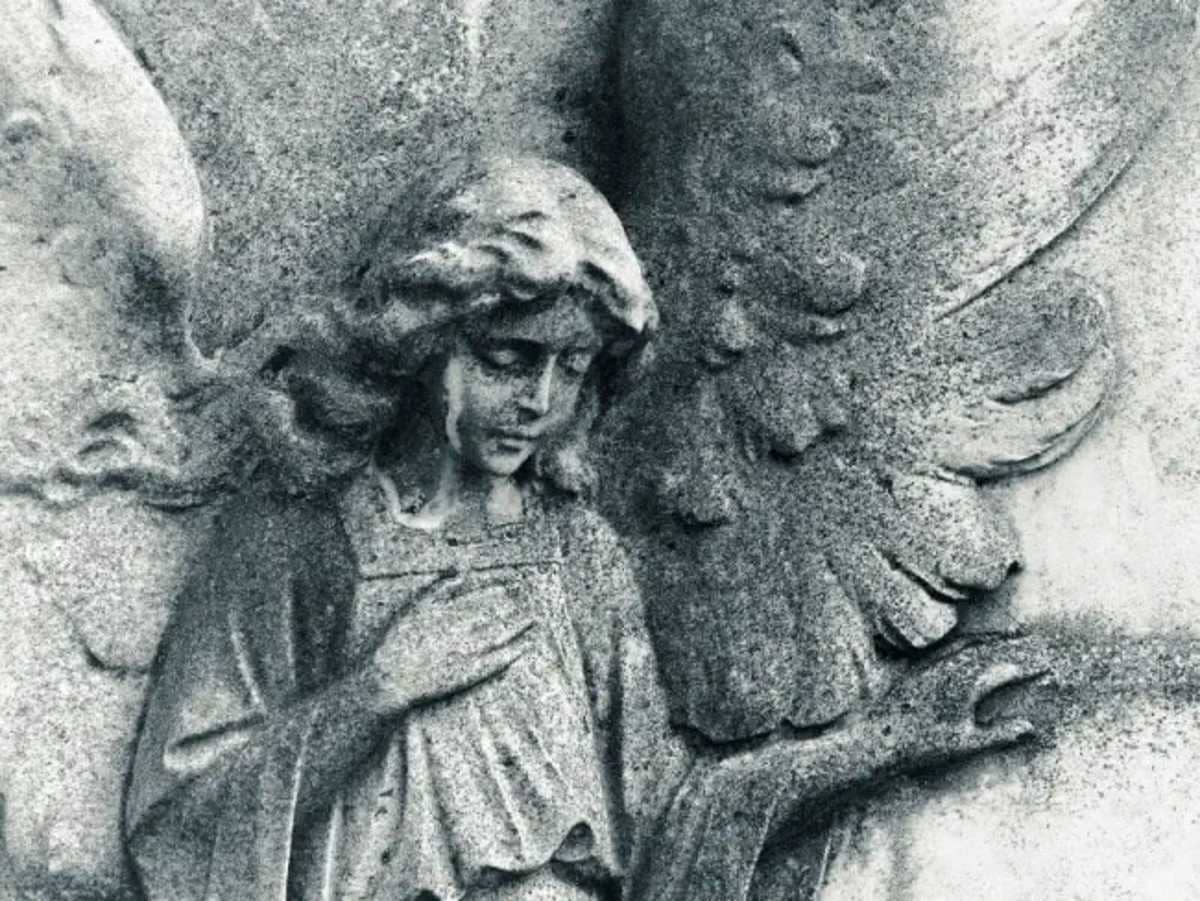Find Out:
What kind of angel appeared to Hagar in Genesis 16? Was it a cherub, a seraph, or perhaps Hagar’s guardian angel? Who or what is "the angel of the Lord"?
The angel of the Lord is a genuine "mystery angel." In the Bible Satan is the premier "bad" angel and the angel of the Lord is the premier "good" angel. The angel of the Lord has fascinated readers of the Bible for ages. In the Scripture it is clear this angel is not a guardian angel, a seraph, a cherub, or an archangel, and it does not belong to any of the hierarchy of angels mentioned in the Bible.
When angels appear they come on the command of God to do the mission he gives them. They are careful not to take any glory for themselves; they give the clear message, "Worship only God."
But, there are times that the angel of the Lord turns out to be none other than God himself. When Hagar ran away from Sarah, the angel of the Lord found her and promised to do himself what only God can do (Genesis 16:10-12). In verse 13 ("She gave this name to the Lord who spoke to her: 'You are the God who sees me…'") the passage is clear that the "angel of the Lord" and the "Lord" (Yaweh or Jehovah) are clearly one and the same. We find this is also true in the story of the burning bush (Exodus 3:2) when "the angel of the Lord appeared to him (Moses) in flames of fire from within a bush." Two verses later, "God called to him from within the bush." The words for God and the angel of the Lord are used interchangeably. There is general agreement by Bible students that "the angel of the Lord," at least in many places in the Old Testament, is a theophany, or a visible appearance of Christ in the Old Tesatament before his incarnation.
In Zechariah and elsewhere, the angel of the Lord talks to the Lord Almighty. How can the angel of the Lord be God and be separate from God at the same time? This mystery can be understood only if we recognize it as being similar to [the passage] John 17 when Jesus, in his earthly life, prays to the heavenly Father in his high priestly prayer.
The angel of the Lord appears in the following Old Testament passages:
1.To Hagar in Genesis 16
2. To Abraham in Genesis 22-23
3. To Moses in Exodus 1-3
4. To Balaam in Numbers 22: 22-35
5. To backslidden Israel in Judges 2:1-7
6. To Manoah and his wife in Judges 13-16
7. To King David in 2 Samuel 24; 1 Chronicles 21: 12-18, 30
8. To Elijah in 1 Kings 19:7, 2 Kings 1:13, 15
9. To destroy the Assyrian army in 2 Kings 19:35 and Isaiah 37:36
10. To Zechariah Zechariah 3:5, 12:8
Do angels ever help bad people?
Hebrews 1:14 says that all angels are "ministering spirits sent to serve those who will inherit salvation." (Italics mine.) That is the primary mission of angels. The Bible promises that God’s angels will help those who follow him. But what about those who do not believe? Can they expect the same angelic help God promises to those who are of the household of faith? No. When God makes promises to his children, those who have chosen not to be a part of the family have no claim to these promises.
Do God’s holy angels ever help non-believers or even "bad" people? I believe the biblical answer is "yes." In the Bible we find accounts of God sending his angels to those who were not of the household of faith.
The first time we find the word angel in the Bible is in Genesis 16 when the angel appears to Hagar. Since she was not a member of Abraham’s family but an Egyptian slave, she was not considered a recipient of God’s covenant promises. Still, God showed compassion for this lost and lonely Egyptian girl. When we read the angel’s words to Hagar, "The Lord has heard your affliction..." (Genesis 16:11), it shows that God cares for the sufferings of those who may or may not know him. Larry Richards writes in "Every Good and Evil Angel in the Bible," "The angel’s words to Hagar provided the guidance and direction she needed, and Hagar heeded his words. We can never assume that God is indifferent to the needs of any human being. He is present with words of direction and guidance for everyone who is willing to hear."
A question that perplexes many is, "Why do bad things happen to good people?" Some are even more disturbed by the question, "Why do good things happen to bad people?" Sarah must have thought it was unfair of God to send an angel to Hagar, the troublemaker she hated the most.
So, why does God have his angels help non-believers? That is God’s business. God is free to do what he desires. God is merciful and noted for his loving-kindness. He makes the rain to fall on the just and unjust alike. God is like that!
2016-06-30
2016-06-30
Beliefnet Editor
more from beliefnet and our partners

